18 Ways To Declutter Your Life And Mind: A Self-Care Guide
In a fast-paced world filled with endless distractions, finding clarity and peace of mind can seem elusive. This guide offers 18 actionable ways to declutter both your life and mind, fostering a sense of calm and focus.
From eliminating unnecessary physical items to setting boundaries with technology and others, each step is designed to help you create a more intentional and serene existence.
1. Eliminate the “Just in Case” Items That Weigh You Down

Hoarding items ‘just in case’ can clutter both your space and mind. These items often sit unused, taking up space and mental energy. Consider their real necessity. Do you truly need that extra set of dishes or the old gadget? Use this question to determine what stays and goes.
Holding onto these things often stems from fear of the unknown. Embrace trust in your ability to adapt without these fallbacks. Letting go clears not only physical space but fosters a lighter, more adaptable mindset.
Start with one category, such as clothes, and gradually tackle others. You’ll find freedom in knowing that you’re not tied to the ‘what ifs’ of life.
2. Turn Off Notifications That Drain Your Focus
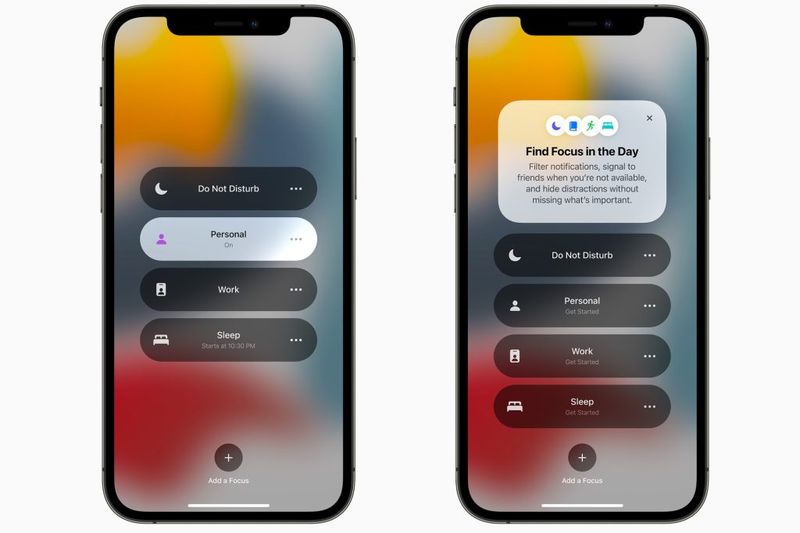
Our devices buzz with notifications that constantly demand attention. This barrage can drain focus and induce stress. Turning off unnecessary alerts frees you to engage with tasks more deeply.
Identify which notifications are essential. Perhaps messages from family or work emails need attention, but do you really need social media pings? Tailor your settings to reflect priorities and reduce distractions.
By curbing these interruptions, you allow your mind to settle into tasks without the anxiety of constant alerts. This quiet digital space can lead to increased productivity and inner peace.
3. Unfollow Accounts That Leave You Feeling Less Than

Social media is a double-edged sword. While it connects, it can also lead to self-comparison and negativity. Unfollowing accounts that affect your self-esteem is a powerful step toward mental clarity.
Consider which profiles inspire and which drain. Does scrolling leave you inspired or inadequate? Cleanse your feed by unfollowing those that bring negativity.
Replacing these accounts with uplifting ones can transform your digital space into a source of positivity. This action not only declutters your feed but reshapes your perception, fostering a healthier, balanced mindset.
4. Say No Without Overexplaining

The art of saying no is a liberating practice. Often, we feel compelled to explain refusals, burdening ourselves with unnecessary guilt. Embrace a straightforward ‘No, thank you,’ without diving into elaborate details.
This practice sets clear boundaries, respecting both your time and energy. It’s not about being rude; it’s about self-care and prioritizing what truly matters to you.
By reducing the need to justify, you release mental clutter and reinforce personal boundaries. It empowers you to focus on commitments that align with your values and goals.
5. Let Go of Outdated Goals That No Longer Fit You

Clinging to past goals can weigh heavily when they no longer resonate. Reflect on whether your ambitions align with who you are today. What once mattered might now feel like an obligation, rather than a passion.
Releasing these outdated goals frees up energy for pursuits that truly excite you. It’s a chance to embrace change and growth without the burden of past intentions.
This practice doesn’t negate your achievements; rather, it acknowledges evolution. Allow yourself the grace to move forward, focusing on what genuinely fulfills you now.
6. Create a “Done” List to Celebrate Progress
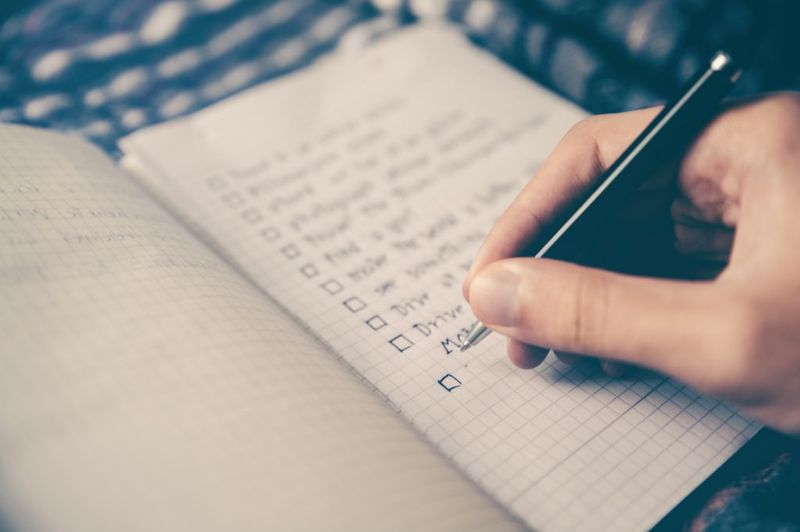
While to-do lists keep us organized, a ‘done’ list highlights progress, offering a sense of accomplishment. Documenting completed tasks can be more motivating than endless to-dos.
Celebrate even small victories, from daily chores to bigger milestones. This practice shifts focus from what’s left to do to what’s already achieved, boosting morale and encouraging positivity.
Keeping a ‘done’ list is a tangible reminder of your capability and progress, fostering a more balanced view of productivity and self-worth.
7. Keep Your Phone Out of the Bedroom

Bedrooms should be sanctuaries for rest, but phones often intrude, disrupting sleep and relaxation. Keeping devices out of this space encourages restful sleep and a clear mind.
Create a dedicated charging area outside the bedroom. This small boundary can significantly improve sleep quality and reduce late-night stressors.
By reclaiming your bedroom as a tech-free zone, you nurture a peaceful environment conducive to rest and rejuvenation, essential for mental clarity.
8. Choose One Inbox—Not Five

Multiple inboxes can scatter focus and breed chaos. Consolidating to a single email account streamlines communication and reduces stress.
Start by forwarding all emails to one main account. This reduces the mental load of checking numerous accounts, allowing for a more organized digital life.
With less to check, you’ll find responding becomes more efficient, freeing time for more meaningful activities. This clarity can significantly enhance peace of mind.
9. Limit Multitasking to Boost Peace of Mind

Multitasking might seem efficient, but it often scatters attention and increases anxiety. Tackling one task at a time allows for greater focus and fulfillment.
Adopt a mindful approach by dedicating time to individual tasks. This increases quality and satisfaction, reducing the cognitive load of juggling multiple tasks.
By limiting multitasking, you nurture a calmer, more centered mindset, enhancing both efficiency and emotional well-being.
10. Clear Your Calendar of Obligations You Secretly Resent
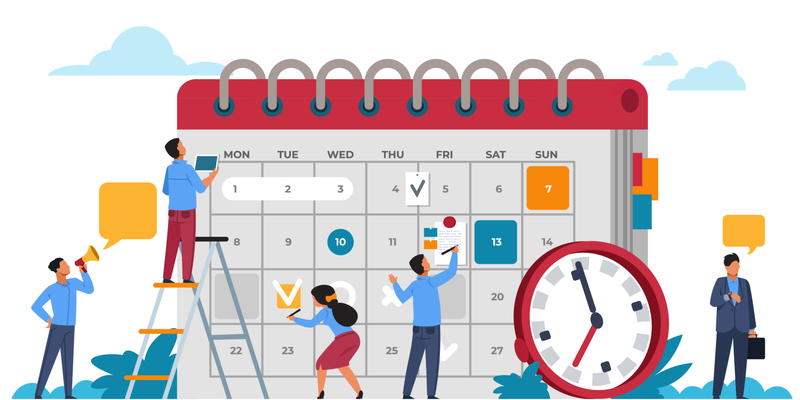
Our schedules often overflow with commitments we secretly dread. It’s time to reevaluate these obligations. Ask yourself if they bring joy or just add stress.
Clearing your calendar of resented tasks frees time for what truly matters. It’s not about shirking responsibility but aligning your time with values and happiness.
By prioritizing joy over obligation, you create a schedule that reflects your priorities, enhancing both productivity and satisfaction.
11. Tidy One Small Area Each Day, Not Everything at Once

Decluttering doesn’t have to be overwhelming. Tackling one small area each day keeps the process manageable and less daunting.
Focus on a drawer, a shelf, or a corner. This methodical approach ensures progress without burnout, making decluttering a sustainable habit.
With each small victory, you’ll notice not just physical space but also a mental lightness, creating ongoing motivation to maintain order.
12. Prioritize Relationships That Feel Safe and Supportive

Not all relationships nurture our well-being. Prioritizing those that feel safe and supportive fosters emotional resilience.
Reflect on interactions. Do they uplift or drain? Cultivate connections that encourage growth and understanding.
This focus on quality over quantity enriches your social circle, providing a stable foundation for times of need and celebration alike.
13. Use a Brain Dump Journal to Release Mental Clutter
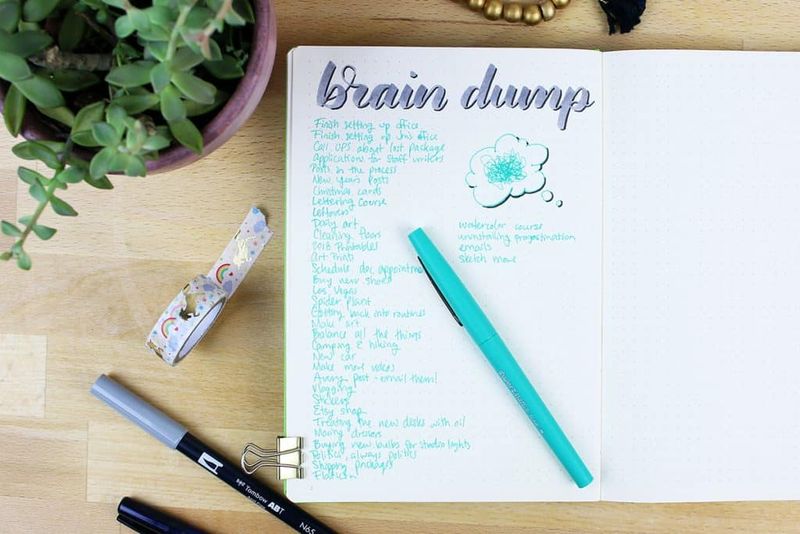
Journaling is a powerful tool for decluttering the mind. A brain dump journal allows thoughts to flow freely, releasing mental clutter.
Set aside time each day to write without judgment or structure. This practice clears mental space, making room for clarity and focus.
By externalizing thoughts, you gain perspective and reduce overwhelm, fostering a more organized and peaceful mindset.
14. Set Boundaries Around Other People’s Drama

Drama can easily seep into our lives, causing unnecessary stress. Establishing boundaries is essential to maintain peace.
Recognize when external issues begin to impact your well-being. Practice assertiveness by kindly distancing yourself from conflicts that aren’t yours to solve.
By protecting your emotional space, you prioritize self-care, reducing anxiety and fostering a tranquil environment.
15. Identify Energy Leaks (And Close Them)

Everyday activities can either energize or drain us. Identifying and closing ‘energy leaks’ boosts vitality and focus.
Audit daily routines. Are there activities that sap energy without benefit? These could be as simple as negative thoughts or inefficient habits.
By recognizing and minimizing these drains, you reclaim energy, allowing for a more vibrant and present life.
16. Batch Tasks—And Stop Jumping From One to the Next
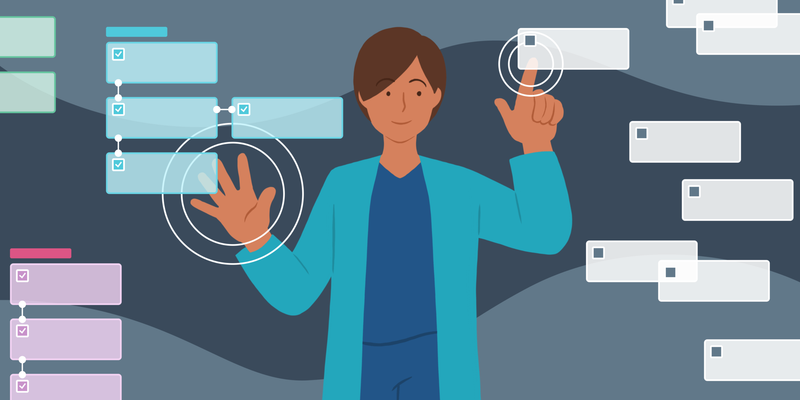
Task-switching can deplete energy and efficiency. Batching similar tasks together promotes deeper focus and reduces cognitive load.
Group tasks by type—emails, errands, creative work—and dedicate specific time slots. This minimizes distractions and allows for more absorption in each activity.
By committing to batching, you streamline efforts, enhancing both productivity and mental clarity.
17. Unsubscribe From Things That No Longer Serve You

Subscriptions, both digital and physical, can quickly accumulate, creating clutter. Unsubscribing from what’s unnecessary clears both inbox and mind.
Review subscriptions regularly. Are they informative or merely noise? Declutter by removing the non-essential.
This act of culling helps in reclaiming time and mental bandwidth, allowing focus on truly valuable content.
18. Remember That Simplicity Is a Self-Care Practice

Embracing simplicity can be a profound act of self-care. It’s about choosing ease and joy over complication.
Evaluate areas of life where simplicity can be introduced—be it decor, routines, or commitments. This simplification can reduce stress and enhance clarity.
By valuing simplicity, you create space for more meaningful experiences, nurturing a balanced and fulfilling life.







